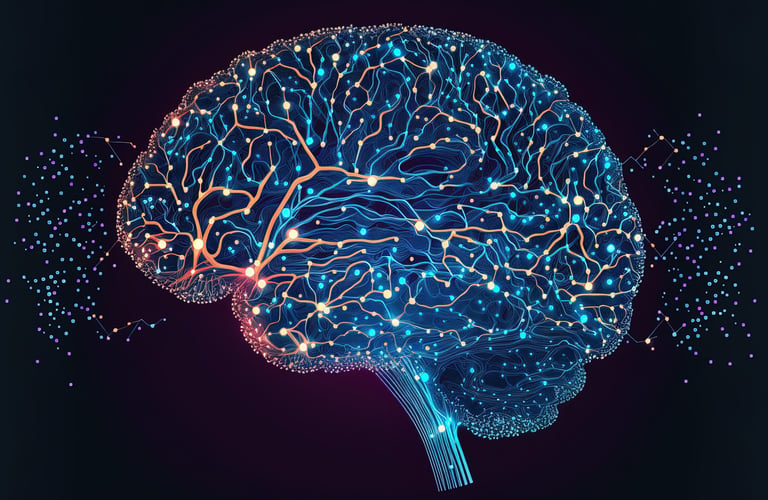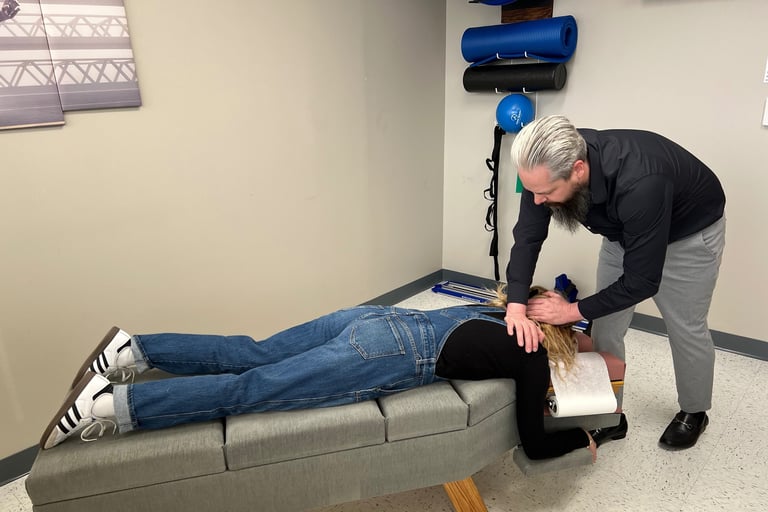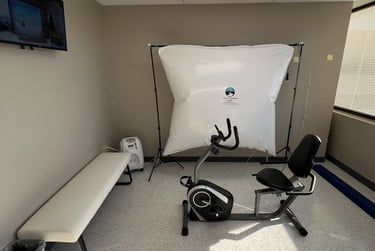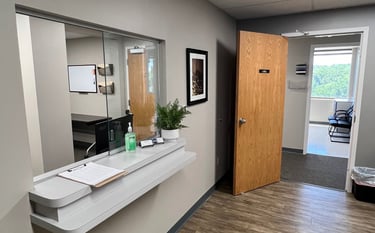Frontal Lobe Injuries After TBI: How Kansas City Patients Experience Disruption in Focus, Behavior, and Speech
Frontal lobe injuries from traumatic brain injury can affect focus, behavior, and speech. Kansas City chiropractor Dr. Lance Stevenson explains how these symptoms impact daily life and the importance of targeted treatment for recovery.
Lance Stevenson, DC
8/3/20253 min read


Frontal Lobe Injuries After TBI: How Kansas City Patients Experience Disruption in Focus, Behavior, and Speech
When you suffer a traumatic brain injury (TBI), not all parts of the brain are affected equally. At our Kansas City clinic, we see that many long-term symptoms are caused by damage to the frontal lobe—the part of the brain responsible for planning, focus, motor control, and personality.
Whether you’ve experienced a concussion from a car accident in Overland Park or a fall in Liberty, understanding how the frontal lobe works helps explain why you may still be struggling with concentration, mood, or decision-making—even weeks or months after the injury.
What Does the Frontal Lobe Do?
The frontal lobe, located behind the forehead, plays a major role in:
Executive function (planning, organizing, prioritizing)
Focus and sustained attention
Emotional regulation and social behavior
Voluntary muscle control
Speech production (Broca’s area, typically in the left hemisphere)
Impulse control and motivation
This area is sometimes called the “control center” of the brain because it helps you make decisions, stay organized, manage emotions, and execute tasks.
Why Is the Frontal Lobe So Commonly Injured in TBI?
Due to its position at the front of the skull, the frontal lobe is highly vulnerable to impact, especially in:
Car accidents with sudden deceleration (coup-contrecoup injuries)
Falls or head trauma where the forehead strikes an object
Rotational injuries that shear the connections between the frontal lobe and deeper brain structures
Even mild concussions can disrupt the frontal lobe's connections to other parts of the brain, leading to symptoms that persist long after the initial injury.
Common Symptoms of Frontal Lobe Injury After Concussion
Patients in Kansas City with frontal lobe dysfunction often report:
Trouble focusing or staying on task
Mental fatigue after short periods of concentration
Poor short-term memory or working memory
Difficulty finishing tasks or following through
Mood swings or emotional outbursts
Loss of motivation (apathy or abulia)
Risky behavior or lack of inhibition
Word-finding difficulty or broken speech
These symptoms can significantly impact work performance, academic success, relationships, and daily decision-making.
How We Evaluate Frontal Lobe Function After TBI
At our Kansas City clinic, we perform a full neurological evaluation that includes:
Cognitive screening for executive function
Speech and language testing (especially for Broca’s aphasia)
Motor coordination and reaction time
Behavioral assessments and symptom questionnaires
Targeted eye movement testing, since frontal regions help initiate voluntary saccades
By understanding your specific pattern of dysfunction, we can tailor therapy to rebuild the systems impacted by frontal lobe injury.
TBI Rehabilitation for Frontal Lobe Injuries in Kansas City
If your concussion or brain injury involves the frontal lobe, your recovery may include:
Executive function retraining (scheduling, time management, task-switching)
Speech-language therapy for expressive aphasia
Eye movement control exercises
Cognitive endurance building to improve attention span
Behavioral coaching and emotional regulation support
Integrative rehab that combines physical, cognitive, and neurological components
We create region-specific recovery programs to target the damaged networks—not just treat the symptoms.
Serving Patients Across Kansas City and Surrounding Areas
If you or a loved one is dealing with poor focus, brain fog, irritability, or speech difficulty after a concussion, don’t assume it’s just “post-concussion syndrome.” These symptoms often reflect deeper frontal lobe dysfunction, and they can improve with the right treatment.
We help patients throughout Overland Park, Lee’s Summit, Raytown, Blue Springs, Shawnee, Liberty, North Kansas City, and Belton recover from brain injuries with targeted care designed to restore function—starting with a detailed brain map.
Call Dr. Lance Stevenson at 816-226-7476 today to schedule your complete TBI evaluation and find out how frontal lobe rehab can help you recover clarity, focus, and control.
top-Rated auto accident injury Chiropractors & car accident Doctors in kansas city
Personal Injury Chiropractors Serving Missouri and Kansas Patients
Looking for a Chiropractor Near Me? A Car Accident Chiropractor in Kansas City who specializes in auto injuries? Dr. Lance Stevenson, DC, has managed over 4,000 car accident cases and brings 12+ years of clinical experience treating whiplash, concussions, back pain, and more.
Same-day appointments and walk-ins available—because you shouldn’t have to wait when you’re in pain.




Call Now to Schedule Your Free Consultation


Whiplash Chiropractor in Kansas City
Lance@ChiroKC.com
816-226-7476
© 2025 Lance Stevenson, DC, LLC. All rights reserved.
Disclaimer: The content provided on this page is for informational and educational purposes only and is not intended as a substitute for professional medical, legal, or insurance advice. While every effort is made to provide accurate and up-to-date information, it should not be relied upon as the sole basis for decisions regarding your health, legal matters, or insurance claims. Please consult with your healthcare provider, attorney, insurance company, or other relevant professionals for personalized guidance tailored to your specific situation.
1010 Carondelet Dr., Suite 416
Kansas City, MO 64114